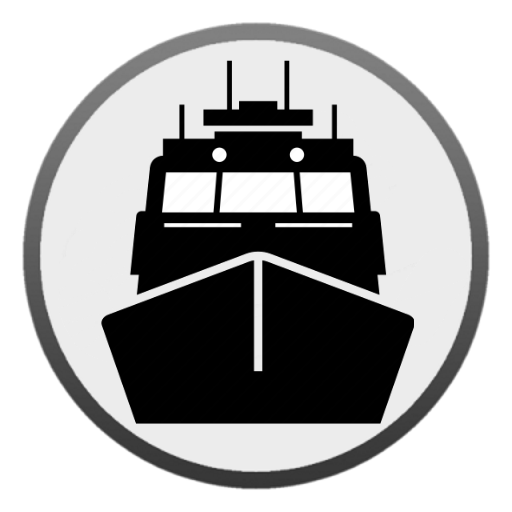What I currently have
- Website
- FreshRSS
- Zabbix
- Mastodon instance
- Lemmy instance
- Nextcloud
- Vaultwarden
- Jellyfin
- qBittorrent
- Synapse (Matrix homeserver)
- Matrix iMessage bridge
- Portainer
- Authentik
- 2 Minecraft Servers
- BreezeWiki
Things I don’t need
- The *arrs (I’m not pirating things enough for them to be needed)
- HomeAssistant
https://github.com/awesome-selfhosted/awesome-selfhosted
Seriously though, I think there needs to be a rule against these kind of “What should I host” posts (nothing against you personally OP). It comes up almost every day, also used to come up everyday on /r/selfhosted… I was talking about this with someone just a few hours ago… https://lemmy.world/comment/780603
Mods, what about a ban on these posts, and redirect people to the “What do (should) I (you) self-host” pinned post where people can go and look for suggestions? Sorry, not trying to be negative - but this is exactly why /r/selfhosted was getting boring (that, and the disguised ads).
OP, sorry to hijack your thread. Here is my recommendation for you: Shaarli
Would be pretty simple to get a frontend that serves up a random entry from that github repo, could be a fun weekend project
Not sure if you count Audiobookshelf under arrs but that’s a good one
Maybe Tandoor for recipes and Groceries from David Shay for shopping lists of all kind. So far the best multi User shopping list / app I ever had.
groceries got me interested, but I’m not able to get it working in docker. I am trying to run it behind caddy reverse proxy. All the containers are running, and it seems the couchdb database has been created but I get nothing when going to the url of the server and client. Just blank page.
Hmm, what do docker logs -f <container> tell? I made myself a compose file and use traefik. Not on my PC atm, but when I had problems getting it running, I made mistakes with the secrets. But that should show in the logs.
I get a lot of stuff… The first time i tried to make a docker-compose myself based on docs, and it made the groceries db. But I found out you need a lot of settings for couchdb, so I tried to run the default files, and I got an error on docker-compose.yml file. It wouldn’t run due to “restart: always” in the healthcheck of couchdb.
Now it seems it is complaining about JWT settings, even though I have base64-code in jwt.ini corresponding to the phrase in docker-compose.
groceries-server_1 | [07:30:22] ERROR: Cannot access database with encoded JWT key. Please check HMAC entry in jwt.ini. The hmac:_default value should be: c3F1ZWVnZWUtZmxhdG5lc3Mtb2NjdWx0aXN0LWNvbmZ1c2luZw==Which corresponds to the jwt.ini
[]hmac:_default = c3F1ZWVnZWUtZmxhdG5lc3Mtb2NjdWx0aXN0LWNvbmZ1c2luZw==I got a bad feeling about the whole thing… I think I will stick to caldav + tasks.org for my shopping list, it has a much simpler setup…
Setup of the HMAC Key for the CouchDB was indeed the step I struggled with too. I think the first time I either made a mistake or used a broken Website to generate a Base64 value. The 2nd time my mistake was that I put in the Base64 value for the HMAC Key into the jwt.ini AND in the docker-compose.yml. But in the docker-compose.yml COUCHDB_HMAC_KEY, I had to put it unencoded and in the jwt.ini hmac:_default it has to be Base64 encoded. Maybe this is the thing you did wrong too?
I bet you are close!
On the other hand, if you are the only person using the shopping list and your current setup offers you what you need, maybe it is not worth it for you. For me it was (and updating when it runs is super easy, I promise!). The instant sync over all devices is great + it keeps working when I lose reception in a shop and syncs again instantly when I have internet again. But what makes Groceries for me are:
- The ability to have an item on multiple shopping lists if needed and if it is checked off from one list, it is checked of from the other lists too. I stopped forgetting buying stuff that was not available in the 1st shop to get in the 2nd.
- The ability to add items to aisles and move the aisles in different order for each list (every shop I visit has a bit of a different layout). This made shopping super quick for me, because I enter the shop and walk through it exactly once and have everything I need, because it is all in the correct order on the respective list.
Oh, and adding a photo to an item is super useful if you are like me and need very close instructions what to get for your partner if you stand in front of a shelf with 100 different types of cheese which look all exactly the same to you… having a photo is sometimes a life saver for me :-)
You’re already pretty crazy so, maybe Piped or YouTube Local
Reminded me I forgot to put rehike on the list of things I’m hosting
How did you self-host Lemmy? I’d like a single Portainer container that I can use
Lemmy uses multiple different containers, you have to throw all of them into the same container network to get connections between them working.
AIO containers are generally not recommended.
Wallabag for read-it-later articles and HedgeDoc for md notes
Self host games with https://crackpipe.de/
I had to work around daytime bandwidth caps for a couple years so being able to download content overnight was pretty handy.
Tube Archivist is “Your self hosted YouTube media server”. I follow several youtube channels and so this will automatically fetch videos and serve them locally which is great. - https://www.tubearchivist.com/
On a similar note LanCache is also handy at providing a local cache for Steam and Windows Updates when you have several PCs on the same network - https://lancache.net/
Pi-hole is a popular DNS based ad-blocker that can cut down on some ads and trackers - https://pi-hole.net/





